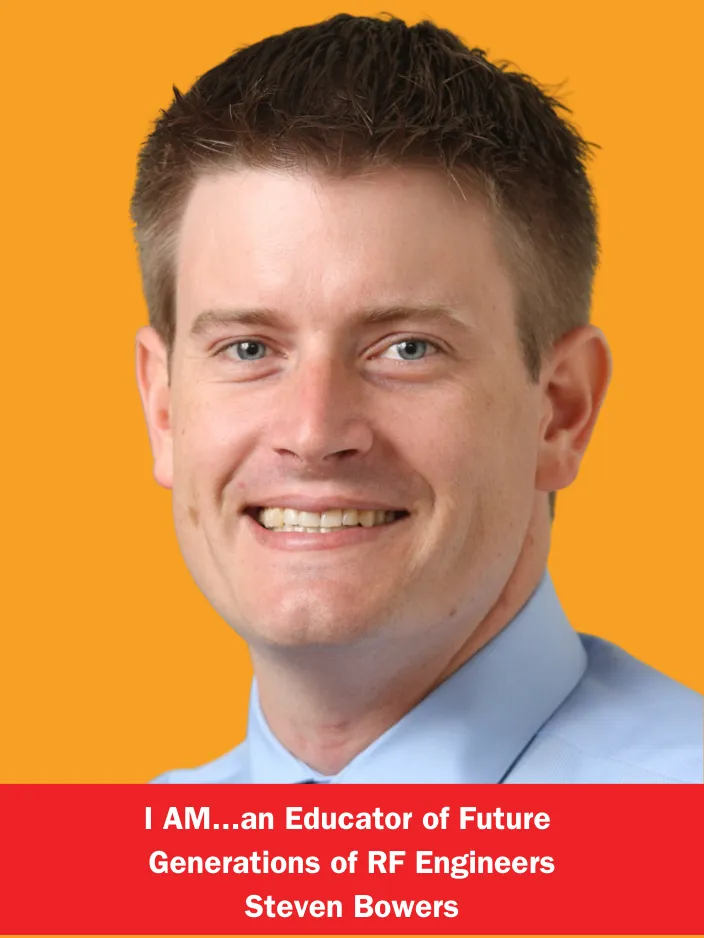
Steven Bowers, Associate Professor, Charles L. Brown Department of Electrical and Computer Engineering, University of Virginia
I AM...an Educator of Future Generations of RF Engineers
As a professor, my favorite classes to teach are our 3rd year undergrad courses. At the University of Virginia, these are often the first elective courses in the major that the students get to take after completing their core courses, which means that there is a bit more self selection of students that really want to take the course. At the same time, these students are still exploring what areas of electrical or computer engineering they want to focus their careers on. I have found these courses can often be transformative, and can be very rewarding when you can be a part of helping a student define the broad trajectory of their technical career, even if just a little bit. It also is a great launching point to get the interested students involved (or often more involved) in doing research in the labs. I think a lot of my perspective on this comes from a similar experience I had in a microwave course I took as a 3rd year undergrad, more on that below.
One reason I wanted to become a professor was to pay forward some of the really transformative experiences I had as an undergrad and grad student to the next generations of engineers. My undergraduate focus area is actually in photonics, not RF or microwave. I took a microwaves course with Prof. Gabriel Rebeiz at UC San Diego in my 3rd year and immediately fell in love with the puzzle solving aspects of designing matching networks, amplifiers and RF systems. I was also incredibly fortunate to be able to with under Prof. Ali Hajimiri at Caltech for grad school, who helped me learn to keep my research head on a swivel, and always be willing to be flexible and change plans and research directions as we learned new knowledge along the way. Now as a professor, I have been able to combine my interests in RF, microwave and photonics, designing across the boundaries of these traditional technology subfields developing systems that would not be possible within a single technology on its own.
At IMS2026 we are launching two new symposia, the RF Technology and Techniques (RFTT) symposium and the RF Systems and Applications (RFSA) symposium will be the homes of the traditional IMS technical program content. The field of microwaves is very broad, all the way from materials, devices and circuits that will find their new home in RFTT to systems that use those components for real world applications that will fine their new home in RFSA. These two symposia will enable researchers and designers from across industry, academia and government to better focus their week at IMS and find their peers working in similar domains. We have been doing a lot of work behind the scenes to get these symposia launched and so the thing I am most excited about is being able to launch them to the broader microwave community.

